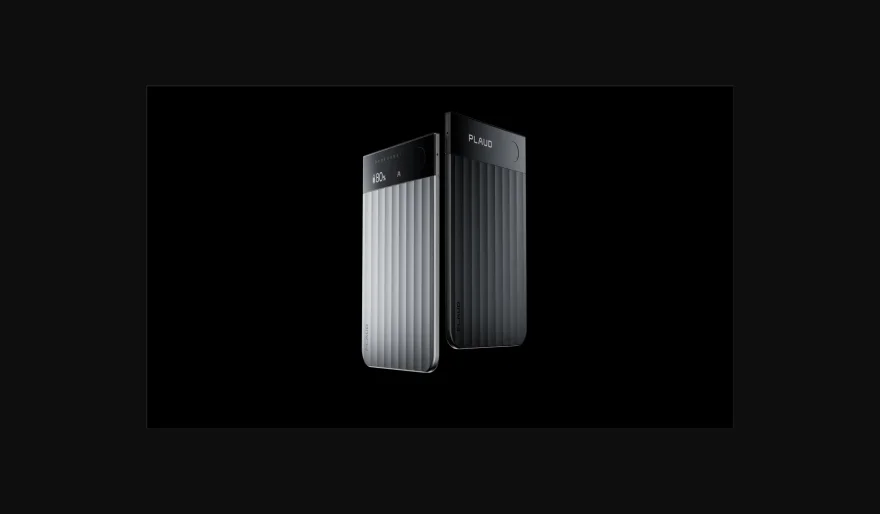Stay Ahead of the Curve
Latest AI news, expert analysis, bold opinions, and key trends — delivered to your inbox.
Plaud.ai Unveils Note Pro – Smarter AI Notetaking, But Is It Enough to Lead the Race..
6 min read A credit-card-sized AI notetaker with 4 mics, an AMOLED screen & smarter summaries. Records 30–50 hrs, auto-detects calls & cuts noise — but leans on its app & paid plans. Competition just got tighter! August 27, 2025 17:10
Plaud.ai has unveiled its latest physical AI notetaker, the Plaud Note Pro, priced at $179, aiming to solidify its foothold in the emerging AI productivity hardware market. Building on the original Plaud Note and its AI pin, this release combines upgraded hardware with smarter software to make real-time, AI-assisted note capture more seamless.
What’s New in the Note Pro?
The Note Pro maintains its credit-card-sized form factor and attaches easily to your phone, but now packs:
-
A 0.95-inch AMOLED display showing battery and recording status.
-
Four MEMS microphones (up from two), doubling its capture range to 16.4 feet (5 meters) and improving noise suppression and speaker detection.
-
30–50 hours of recording per charge, depending on range settings.
-
Auto-detection between calls and in-person sessions, removing manual switching.
The Software Edge
Plaud’s companion app transforms recordings into multidimensional summaries, allows adding images like slides, and supports AI-driven queries (currently in beta). Early buyers get 600 free transcription minutes plus 300 minutes monthly at no charge, with paid upgrades for heavy users.
The Catch: Potential Downsides
While the Note Pro marks a leap forward, there are notable limitations:
-
Screen size constraints — the 0.95-inch display offers only basic information, limiting quick in-device interaction.
-
Dependence on the app for full functionality, meaning the hardware alone isn’t as powerful without your phone.
-
Pricing at $179 positions it higher than many software-only transcription services, raising the question: Will mainstream users pay a premium for physical hardware?
-
Limited transcription minutes before requiring a paid plan could be a friction point for heavy users.
-
Privacy concerns may also surface, as users increasingly question where and how sensitive meeting data is stored or processed.
What Does This Mean for the Competition?
Plaud has already shipped over one million units, and nearly half of its users upgraded to its Pro plan — a figure that signals strong market stickiness. However, this latest release will put pressure on emerging competitors like Friend, Bee (now Amazon-backed), and smaller AI wearable makers.
-
Startups with delayed launches may struggle to gain traction as Plaud establishes early dominance in this niche.
-
Big tech players might see this as a signal to either acquire similar startups or accelerate their own ambient AI hardware plans.
-
If Plaud succeeds in creating a reliable, subscription-supported ecosystem, it could set the standard for AI productivity devices that blend hardware and SaaS.
The Future of AI Notetaking
With shipping slated for October 2025, the Note Pro represents a step toward portable, task-focused AI companions — tools that make meetings, lectures, and spontaneous conversations instantly actionable without needing a full wearable ecosystem.
However, the race is far from over. As more tech companies pivot to AI hardware, the question becomes: Will dedicated devices like the Note Pro thrive, or will their features be absorbed by smartphones and mainstream AI assistants?
Industry Implications
-
Today: Plaud demonstrates that a focused product with clear utility can survive where many AI hardware startups have stalled.
-
Tomorrow: Expect tighter competition, more partnerships between hardware and AI software companies, and likely feature convergence with mainstream smartphones and wearables.



















 AI Agents
AI Agents